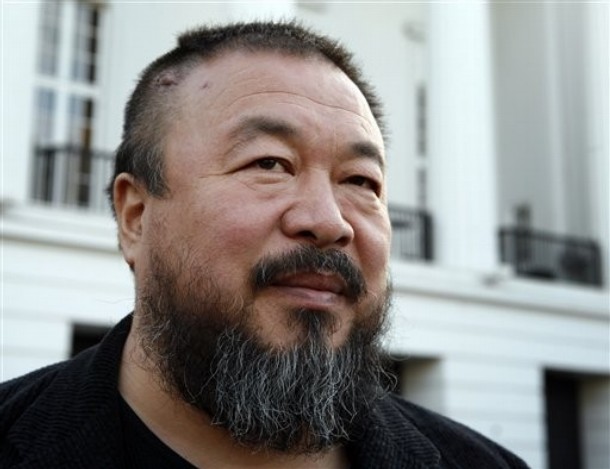China’s Angry Artist Throws Down the Gauntlet

By Patrick Chovanec
To my mind, the most underreported story of China’s October 1st “National Day” anniversary was the emergence of Ai Weiwei as the most outspoken critic of China’s ruling regime.
For those who are not familiar, Ai Weiwei was the designer of the “Bird’s Nest” stadium that served as the main venue for the 2008 Beijing Olympics. A big bear of a man with a grizzly beard, he is known for his gruff and eccentric manners and his avant garde antics as a performance artist (his most notorious work was the F*** Off” exhibit, which featured photos of Ai giving the finger to the White House and Tiananmen Square, and smashing real — and priceless — Ming vases).
Ai_WeiweiAi, whose father was a poet exiled to Xinjiang to clean toilets during the Cultural Revolution, has never been shy in expressing his contempt for China’s Communist Party leadership, usually in the form of blunt and quotable asides. Authorities have long seen him as a “disruptive element”. But recently, Ai has really stepped it up a notch. He has played an active role in organizing investigation petitions by parents in Sichuan whose children were killed when many schools collapsed in late year’s earthquake, allegedly due to substandard materials and construction attributable to official corruption. On a recent trip to Sichuan, to witness the trial of one of his fellow activists charged with “inciting subversion of state power,” police broke into Ai’s hotel and walloped him over the head, causing cranial injuries that later required emergency brain surgery in Germany.
But it was his public statements on and around October 1st which have truly propelled him into untested and potentially dangerous territory. He published a prominent op-ed in TIME Magazine calling for democratic accountability and describing the 60th Anniversary celebrations as “the final hurrah of a dying system.” In an interview with Al Jazeera, he violated one of the country’s most sensitive political taboos by saying “China would be much better off” if Mao’s Communists had lost to Chiang Kai-shek in 1949. Elsewhere, he openly compared China’s ruling Party to a Mafia crime family (something he has done before, but without quite the same global audience to hear it). None of these comments would seem that shocking coming from pundits or activists outside of China. But coming from a Chinese citizen, on the incredibly sensitive occasion of an anniversary marking the Communist Party’s 60-year hold on power, China’s leaders are likely to view them as virtual treason.
Obviously Ai Weiwei is making a conscious bid for the role of China’s dissident-in-chief. The interesting question is how China’s authorities will respond as he grows more and more provocative. True, Ai does not have a large public following — most people in China know him for the Bird’s Nest and know nothing of his politics. I personally find some of his countercultural antics a bit childish. But his TIME article, in particular, was a measured and eloquent expression of precisely the social trends and political ideas that the Party fears most. Ai’s gutsy words will be seen as both an affront and a threat.
------
Patrick Chovanec is an associate professor at Tsinghua University’s School of Economics and Management in Beijing, China, where he teaches in the school’s International MBA Program. He blogs at http://chovanec.wordpress.com/
(AP Photos)



